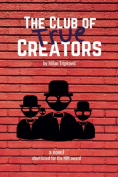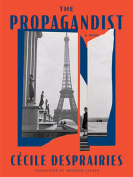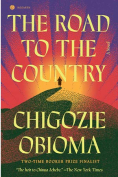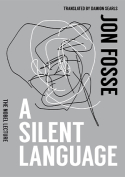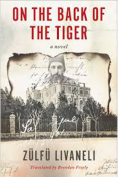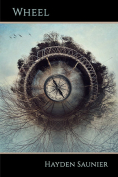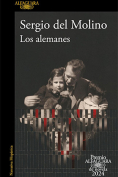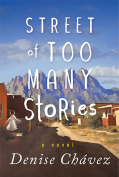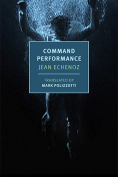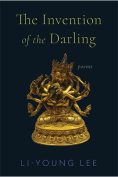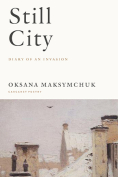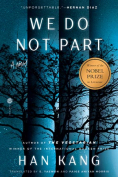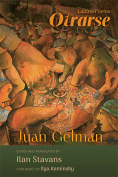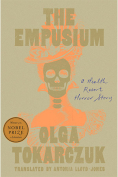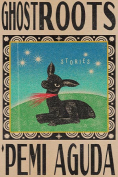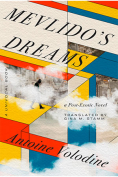Street of Too Many Stories by Denise Chávez
 San Antonio, Texas. Conocimientos Press. 2024. 168 pages.
San Antonio, Texas. Conocimientos Press. 2024. 168 pages.
In Spanish there’s a well-known saying, Pueblo chico, infierno grande (Small town, large hell), a biting statement that applies perfectly to Encantada, New Mexico, where its main street, also named Encantada, stretches across “that liminal space of challenge and hope.” The street, asserts the narrator, “remembered everything,” and, like a flash flood, stories, secrets, unpleasant truths, and hurtful lies come gushing out of the homes that line the neighborhood. This is how more complete versions of the Fuentes, Chapa, Stillman, and Blanco family portraits come into focus, “broken-down and dysfunctional.”
Celebrated author Denise Chávez, whose best work showcases the extraordinary inner worlds of ordinary people, brings Encantada Street to life, one resident at a time, in this truly moving novel about the first emotional battles that transpire in the kitchens and bedrooms but which can inflict a lifetime of suffering and pain. Chávez pays particular attention to the children of the households, the innocent who are vulnerable to the dangers—not from strangers—but from their very own family members. Abuse and trauma, however, do not need to be legacy: “We are not our fathers. We are not our mothers. Their spirits reside in us, but we don’t have to live their lives.” Thankfully, the novel also highlights those who see Encantada Street through a more positive perspective, like Vicky Fuentes, who becomes her father’s tireless caregiver but who can still appreciate the modest blessings like when the “sky is electric, filled with a wondrous light.”
Though the community of Encantada teems with rich and fascinating characters, each with unique journeys, one eventually claims her place as a main protagonist: Linda Chapa, whose story is one “full of fury and blood . . . but it was also a story of bravery, strength and goodness.” Worldly and adventurous, unlike many of the women who were unable or unwilling to escape “the men who killed their hopes and dreams,” trapping them inside their claustrophobic town, Linda is the prodigal daughter come back to reckon with her family’s transgressions: “I just can’t leave,” she explains after her return. “I love this place; I hate this place.”
Indeed, readers will understand that conflicted feeling after visiting Encantada for themselves. There, the wind “is full of too many voices, too many stories, and to sort through them is a gift few are given.” How fortunate that Chávez possesses such a storytelling skill, which is on full display in Street of Too Many Stories.
Rigoberto González
Rutgers University
